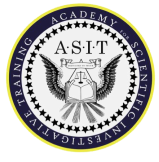offering Polygraph Classes accredited by the AMerican Polygraph Association since 1980
and now accredited by the
International Society of Polygraph Examiners
and now accredited by the
International Society of Polygraph Examiners
HoursM-F: 8am - 5pm
|
Telephone |
|
